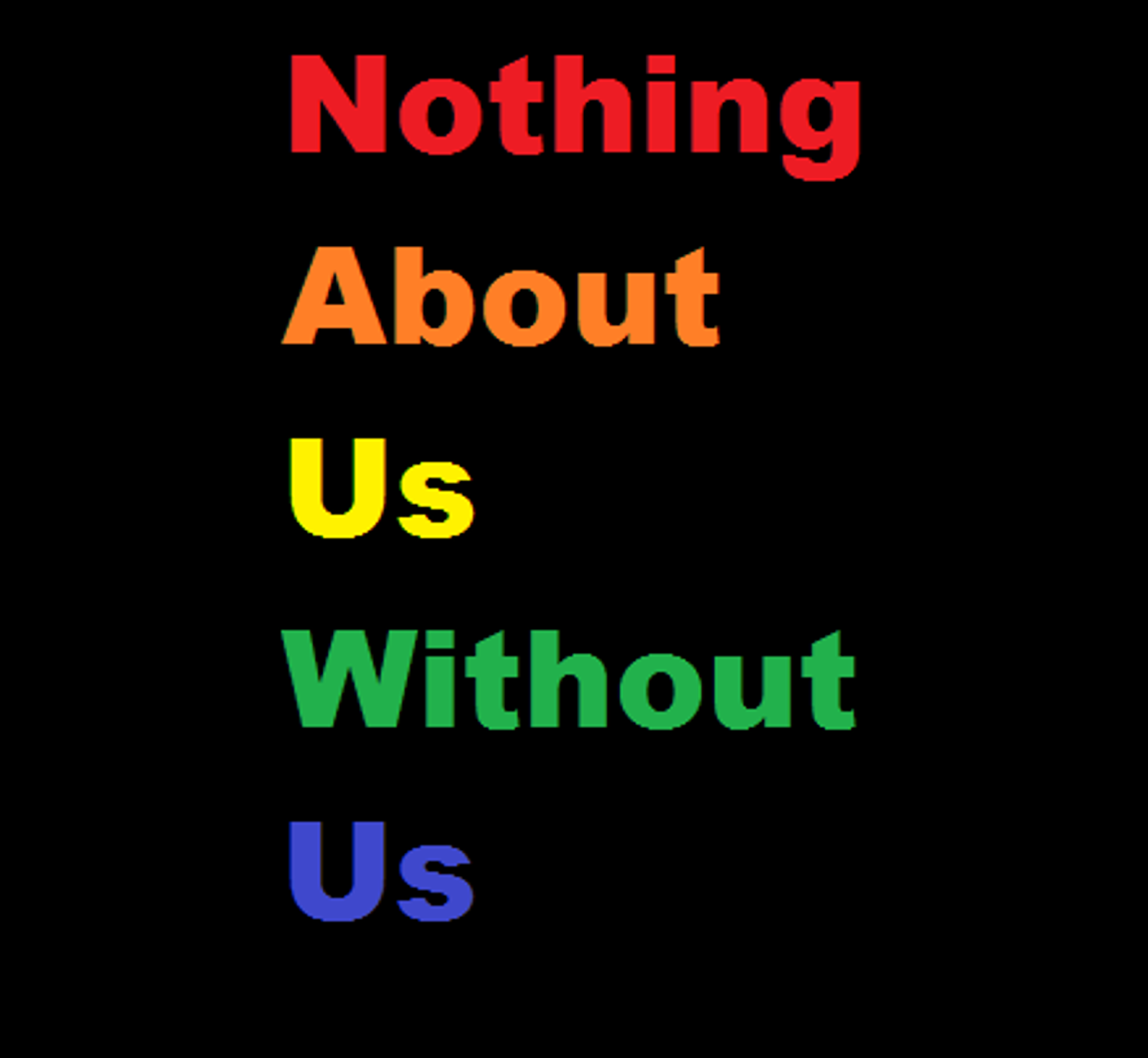TPGA is observing Autism Acceptance Month by featuring accounts from autistic people about the differences accommodations (or lack thereof) make in their lives. Today’s story is from Kathryn Hedges, about how noisy environments can disrupt her ability to process and function. Kathryn Hedges www.khedges.com I don’t fit the autistic stereotypes people learn from “autism awareness” campaigns: I’m an adult female who can converse with you (most of the time) and live independently with fewer supports than the average non-autistic person. (At least based on the number of times a week people tell me their friends or family did XYZ for them so why don’t I ask mine for help.) I’ve worked hard as an adult to learn social skills, which helps hide my autism and give me a veneer of “high functioning” over my interior “low functioning” with sensory issues and emotional regulation. One of the most disabling aspects of…
Tag: autism acceptance month
TPGA is observing Autism Acceptance Month by featuring accounts from autistic people about the differences accommodations (or lack thereof) make in their lives. Today’s story is from Sara Luterman, about the “frequent adjustments” that are necessary for her to be properly accommodated at her workplace. Sara Luterman www.nosmag.org The statistics around autism and employment can be incredibly discouraging. Forty-two percent of autistic people in their twenties — people like me — are unemployed, even though only 26% of overall young disabled people are out of work. This might seem counter-intuitive. After all, if someone can do well in college or even graduate school, surely they should be able to do well once they join the workforce? Unfortunately, it doesn’t work that way. Like many of my autistic peers, I have struggled to keep a job. I was fired from the first full-time job I ever had after just two weeks:…
TPGA is observing Autism Acceptance Month by featuring accounts from autistic people about the differences accommodations (or lack thereof) make in their lives. Today’s story is from Mandy Klein, about how it feels when one’s ability to function fluctuates, but is not recognized or accommodated. Mandy Klein talesfromanautismfamily.blogspot.ca I am autistic, with the old label of Asperger’s, if that makes any difference — though it shouldn’t. Speaking to communicate is not something I am good at. When my anxiety is bad and/or I am in public — especially in a group — my speaking ability is pretty much zero. I had a most horrible experience in a group specifically for autistic people to learn mindfulness. It was at an agency that is “aware” of autism, as they are an agency that specifically provides services to autistics. Are they an agency that is accepting of autistics? Not so much. The agency…
Flickr photo by Laura Wechsler. Creative Commons License. [Image: East Asian person wearing blue headphones, seen through the door window on a NYC subway car.] At TPGA, April is Autism Acceptance Month. In keeping with (and quoting from) The Autistic Self-Advocacy Network’s Autism Acceptance Month project: “April is Autism Acceptance Month. During Autism Acceptance Month, we focus on sharing positive, respectful, and accurate information about autism and autistic people. “Autism Acceptance Month promotes acceptance and celebration of autistic people as family members, friends, classmates, co-workers, and community members making valuable contributions to our world. Autism is a natural variation of the human experience, and we can all create a world which values, includes, and celebrates all kinds of minds. “In a nutshell, Autism Acceptance Month is about treating autistic people with respect, listening to what we have to say about ourselves, and making us welcome in the world.” For Autism Acceptance Month…
Autism Acceptance Month starts today! Autism acceptance month is an autistic-led movement “about treating autistic people with respect, listening to what we have to say about ourselves, and making us welcome in the world.” Here are some ways you can observe Autism Acceptance Month: Autism Acceptance Campaigns and Projects The Autistic Self-Advocacy Network’s (ASAN) Autism Acceptance Month Project www.autismacceptancemonth.com [image description: a pyramid of three rainbow asterisk stars, to the left of the words “I signed the pledge! Acceptance is an action. Autism Acceptance Month.] “April is Autism Acceptance Month. During Autism Acceptance Month, we focus on sharing positive, respectful, and accurate information about autism and autistic people. “Autism Acceptance Month promotes acceptance and celebration of autistic people as family members, friends, classmates, co-workers, and community members making valuable contributions to our world. Autism is a natural variation of the human experience, and we can all create a world which values, includes,…
This month we’re asking our autistic community members What Do You Want? What Do You Need? We’re featuring their answers all April long, right here. Today we’re having a conversation with Ally Grace. Please read, listen, and share. A bit about me: I am an autistic woman, and I live in a household full of autistics. My partner, Bart, and my four children, are also autistic. We live in Australia. I love to read and write, and I am a proponent of radical parenting reform and radical education evaluation; especially in regards to autistic children. I have a strong belief in the abilities of all children and adults to be highly motivated and ethical beings, and I dream of a day when more trust is put into our autistic children and adults. My own children are raised without the use of Behaviourism, and without coerced learning. I have an interest…
This month we’re asking our autistic community members What Do You Want? What Do You Need? We’re featuring their answers all April long, right here. Today we’re having a conversation with engineer Star Ford, whom we spoke with earlier this month about the Ocate Cliffs project. Please read, listen, and share. There’s a lot of stuff out there aimed at or against autistic people — therapies and services — but there is a big disconnect between that and what we really need. The industry churns by its own internal incentives and since we’re generally not paying, we’re not driving — usually not even asked. I think most of us can feel what we don’t like, when an intervention is done to us, and many can also articulate what we don’t like. But fewer people can articulate why we don’t like it, and almost no one can articulate the alternatives. I’ve…
This month we’re asking our autistic community members What Do You Want? What Do You Need? We’re featuring their answers all April long, right here. Today we’re having a conversation with technology journalist Nick Mediati. Please read, listen, and share. What are some things you like people to know about you? I’m a freelance editor and writer based in the San Francisco Bay Area, focused primarily on technology journalism. I’m a fairly new member of the autism community, having received an official diagnosis last December, but my discovery process was years in the making. I first learned about Asperger Syndrome when I was in college, and it instantly resonated with me.But at the same time, I remember thinking, “That isn’t really me, is it?” But as I learned more about autism beyond the Wikipedia entry, and learned about all the different ways it can manifest itself, the more I realized…
This month we’re asking our autistic community members What Do You Want? What Do You Need? We’re featuring their answers all April long, right here. Today we’re having a conversation with TH, age 12. Please read, listen, and share. What are some things you like people to know about you? I am shy, so nothing. What are some things that make you happy? Why? Chess and Minecraft. Because they are fun games in my opinion. What are some things you avoid whenever possible? Why? People that I do not know, because I am very shy as you may have already noticed. What features does your ideal living space have, and why? I am not entirely sure, but I like the couch that I am on and the laptop I have. What are your favorite books, movies, and/or TV shows? I like Spongebob Squarepants, the Star Wars franchise, the Indiana Jones…
This month we’re asking our autistic community members What Do You Want? What Do You Need? We’re featuring their answers all April long, right here. Today we’re having a conversation with writer M. Kelter, who blogs at The Invisible Strings (theinvisiblestrings.com). Please read, listen, and share. What are some things you like people to know about you? Life is easier when people know my conversational strengths and weaknesses. When I’m around people who know that I generally lack body language … that I may not make great eye contact … and when those people are okay with it, life is good. Other people can misinterpret these traits to mean I’m not listening or not interested in what they are saying, which leads to awkwardness and/or hurt feelings, which is not what I want; so generally I like for people to both know and understand my interaction style. Basically, when that…






